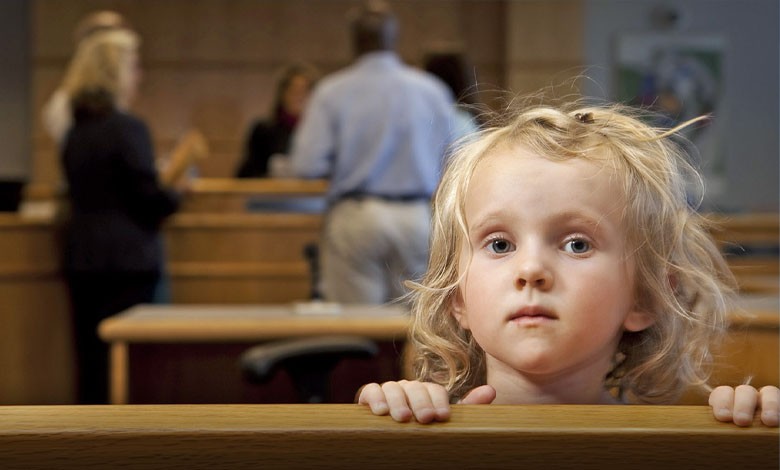A pilot project has been launched in Ukraine to introduce specialization of judges in family and children’s cases

In modern conditions, when Ukrainian society is experiencing complex social and economic transformations, the protection of children’s rights becomes a particularly important issue. Military actions, economic instability and violation of the rights of the least protected categories of citizens, in particular children, require decisive actions from the state. According to international organizations, Ukraine is facing an increase in cases of violation of children’s rights, including involving them in court proceedings as witnesses or victims. This requires the creation of a justice system that will not only take into account the interests of children, but also ensure their psychological well-being and development.
Against this background, the implementation of a pilot project in Ukraine on the specialization of judges in family and children’s cases is a significant step towards building child-friendly justice. Its aim is to create conditions that allow children involved in legal proceedings to feel supported and protected, rather than additional stress.
What the pilot project involves
In Kyiv, on the initiative of the Civil Court of Cassation of the Supreme Court and the Interdepartmental Coordination Council on Juvenile Justice, with the support of the United Nations Children’s Fund (UNICEF) Representation in Ukraine and the non-governmental organization “VHC “Volunteer”, a seminar was held dedicated to the launch of a pilot project on the introduction of specialization of judges in of family and children’s affairs reported The Supreme Court of Ukraine.
The main idea of the project is the formation of a qualitatively new justice system that takes into account the international standards for the protection of children’s rights, defined by the UN Convention on the Rights of the Child.
The pilot project has the following key tasks:
- Adaptation of the court process to the needs of the child. Court cases related to family and children should be considered with the best interests of the child in mind. This applies both to the proceedings and to the environment in which the trial is held.
- Training of specialists. Judges and other professionals who work with children will receive special training to understand their needs and psychological state. This will contribute to better handling of cases and avoidance of injury to children.
- Introduction of specialization of judges. The introduction of specialization of judges in family and children’s cases will help ensure a competent and balanced approach to the consideration of such cases. Judges who have the appropriate training will be able to consider the best interests of the child in their decisions.
- Improving access to justice. Creating a child-friendly justice system will help make court processes less formal and more child-friendly.
- Interdepartmental interaction. The successful implementation of the project depends on cooperation between the judicial system, social services, educational institutions and public organizations. This approach will ensure comprehensive protection of children’s rights.
- The first steps in implementation
The national seminar, which took place in Kyiv, became a starting point for discussing key aspects of project implementation. Judges, representatives of public organizations, lawyers and experts on children’s rights discussed the main challenges facing the justice system in Ukraine. The seminar became a platform for sharing experience and best practices that have already proven their effectiveness in the countries of the European Union.
Opening the event, the head of the Cassation Civil Court of the Supreme Court, Borys Gulko, emphasized that the implementation of the specialization of judges in family and children’s cases is of key importance for Ukraine’s compliance with international standards of children’s access to justice in civil cases that concern their rights and interests. It will also contribute to ensuring the best interests of children and solving complex issues that arise when dealing with cases related to the child’s right to a family, especially in martial law.
He noted that this year the number of cases in the court of cassation related to raising children has more than doubled compared to 2023. This is due to military aggression and the forced resettlement of millions of children. In the current conditions of a full-scale war, the protection of children remains one of the priority missions of the state, and the implementation of a pilot project on the specialization of judges in family and children’s matters is extremely urgent.
Among other things, the event participants drew attention to the importance of creating a comfortable environment for children in courts. This includes arranging special premises for children, simplifying interrogation procedures and introducing psychological support during court proceedings.
Prospects of the project
The introduction of a child-friendly justice system is not only a fulfillment of international obligations, but also an important step towards increasing the level of trust in the judicial system in Ukraine. However, there are many challenges along the way. Among them is the need for additional funding, overcoming bureaucratic obstacles and ensuring the proper level of specialist training.
At the same time, the successful implementation of the project can serve as an example for other areas where children’s rights are violated. In the end, the main indicator of the effectiveness of this project will be the reduction of cases of traumatization of children in the justice process and the creation of conditions that will promote their well-being even in difficult life situations.
The formation of a child-friendly justice system is an investment in the future of Ukraine. By protecting the rights of children today, the state ensures the development of a conscious, educated and responsible generation. The successful implementation of the pilot project can be a turning point in building a fair judicial system that prioritizes the interests of the most vulnerable members of society.





